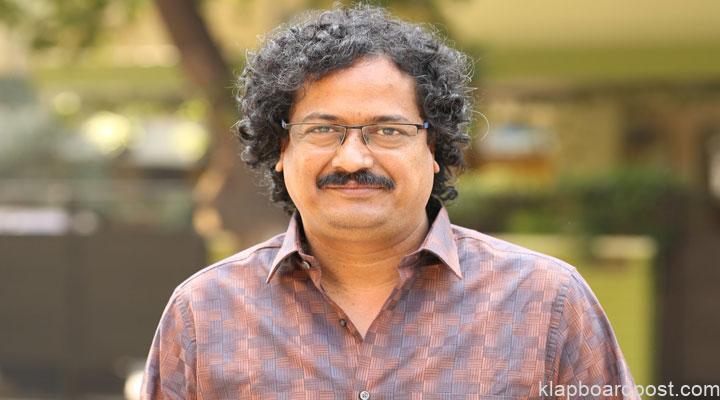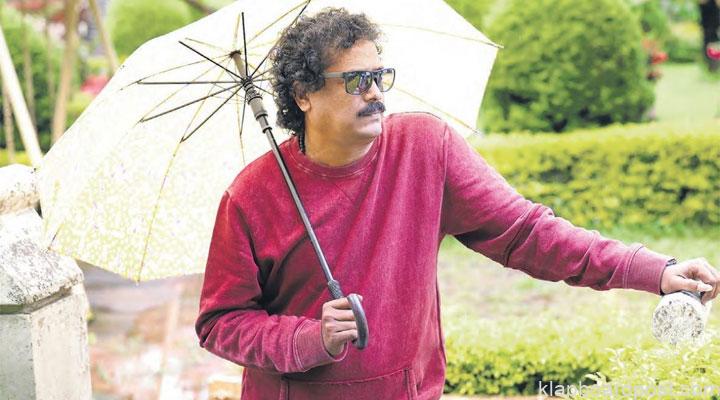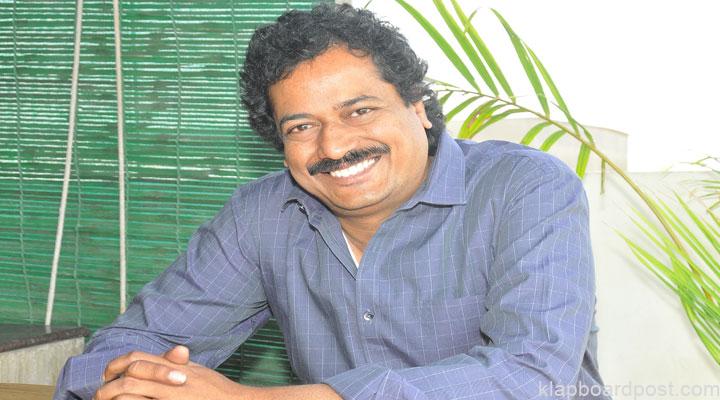Y Sunita Chowdhary
Satish Vegesna is lucky to belong to a family that loves cinema and considers it as an integral part of their lives. He had his priorities clear right from his childhood and told his family that he will not do anything more than graduation. Essentially a writer, he worked in Eenadu and then moved into the movie industry. His first three films might not have been commercially successful but he hit a jackpot on the fourth attempt. Shatamanam Bhavati not only got the State Nandi Award, it won a National Award too. In a chat with Klapboardpost.com, he analyses the change in taste of the audiences and states that it makes more sense to direct films that are essentially a money spinner, and something the youth particularly want to see.
Family and their love for cinema
I come from a middle class family in Tanuku and my father was a die-hard fan of NTR and I would accompany him to all the films. He would see the morning show and watch it again with me in the evening. He would distribute sweets on the 100th day of the film at the theatres. I clearly remember him giving me a huge container filled with coins (money) and making me sit right in front of the screen. Whenever it was the time for the song and dance, my job was to throw the coins on the screen. When I met director Raghavendra Rao once, I told him that. It is indeed an achievement for me that for his Jhummandi Nadam show, he invited me and screened the song for me; the one which I watched at the theatre years back and threw coins at his songs.

Father would watch all NTR films in the morning and take the family for the same in the evening. If the film didn’t release in Tanuku, we would go to another city. I remember Kondaveeti Simham not releasing in Tanuku, so we went to Nidadhavolu. Once I was at college, I would see every film on Friday. If it is good fine, if it is bad then we would not spare it, we would dissect it ruthlessly.
Gradual shift in taste
Family films like Gundamma Katha, Thodi Kodallu were popular before I turned writer and director. For a very long time, people loved and encouraged such stories because they could see their lives being reflected on the big screen. Gradually joint families became nuclear and the separation could be witnessed in the kind of stories that came out later. People saw less of emotional dramas. AVM’s Samsaram Oka Chedarangam had a joint family plot but and there would be misunderstandings. Gollapudi Maruti Rao would stop talking to his eldest son despite staying in the same house. By the time Suhasini returns home from delivery, things have drastically changed and the home becomes a house.
In the 70s and 80s, families became nuclear and they would visit parents during weekends. Whenever the audience sees their story on screen, they get connected. The generation gap became quite visible. In Maniratnam’s Mounaragam, the heroine doesn’t want to go against her parents’ wishes and marries a man of their choice. The same Maniratnam in Sakhi showed the heroine getting married without her parents’ knowledge. This is the connection to the generation.

Behind Shatamanam Bhavathi’s success
It was a family film and we never in the wildest of our dreams thought it would fetch us a National Award. None of the people had faith in the film even while it was being shot, they said it is like a serial and wrote it off. Only people like Dil Raju, Sameer Reddy, the art director etc trusted it. It’s been ages since a family watched a film together or even stepped out to a theatre in some places. Releasing it during the festival proved to be a huge advantage. The subject revolving around Sankranthi in the story was another plus. It had a love story, family emotions, great music and rooting for celebrating the festival in the villages worked big time. Chiranjeevi and Balakrishna’s movies released at the same time but this belonged to another genre. Getting an award was just a bonus. It had the content and worked commercially as well.
Preparing the audience
Directors should make films that the current generation wish to see. If a social film, period or a fantasy film is being made, the audience should be informed and we should prepare them for it less they get a rude shock when they watch it without knowing what it is all about. The publicity and promotions help in this aspect. Some scripts are written only for awards and film festivals and they mostly get it. Commercially it won’t work out but it will be labelled an art film and will stand out. The youth rejected Srinivasa Kalyanam and Entha Manchivadavura. When it was telecast on television, lot of people watched it. We see a success percent of 50 percent only in any industry, but here in movie making, the percentage is far less.
Directors in dilemma
Some films are huge flops and we understand that people didn’t like it at all. There are some that people like as well dislike; on such occasions we don’t know if we need to spin stories around the youth or the families. For success we need to set the other aside and change the preference. There are umpteen discussions going around theatres and OTT platforms but all I can say is cinema before and after Corona will be different. The applause you get for a film that is watched in a theatre is different from what you get to see at home.

You are good at singing and well prepared to perform on stage but if all of a sudden someone tells you that it is fine if you sing on a video call on the phone, how would you react? It is the same talent but if you praise or criticise, you get to hear if it’s appreciated or not. The live reception you get in the hall goes missing. Those on the artistic side always crave for applause and appreciation along with money but for producers it is primarily money and they are justified in their approach. A script can be made in amount of money but we need to make sure how much of the investment can be recovered. Earlier trade pundits would predict that a particular film will collect this much but now it is impossible. We don’t know how much we can invest at this point of time. It will take two years to get back on track.













